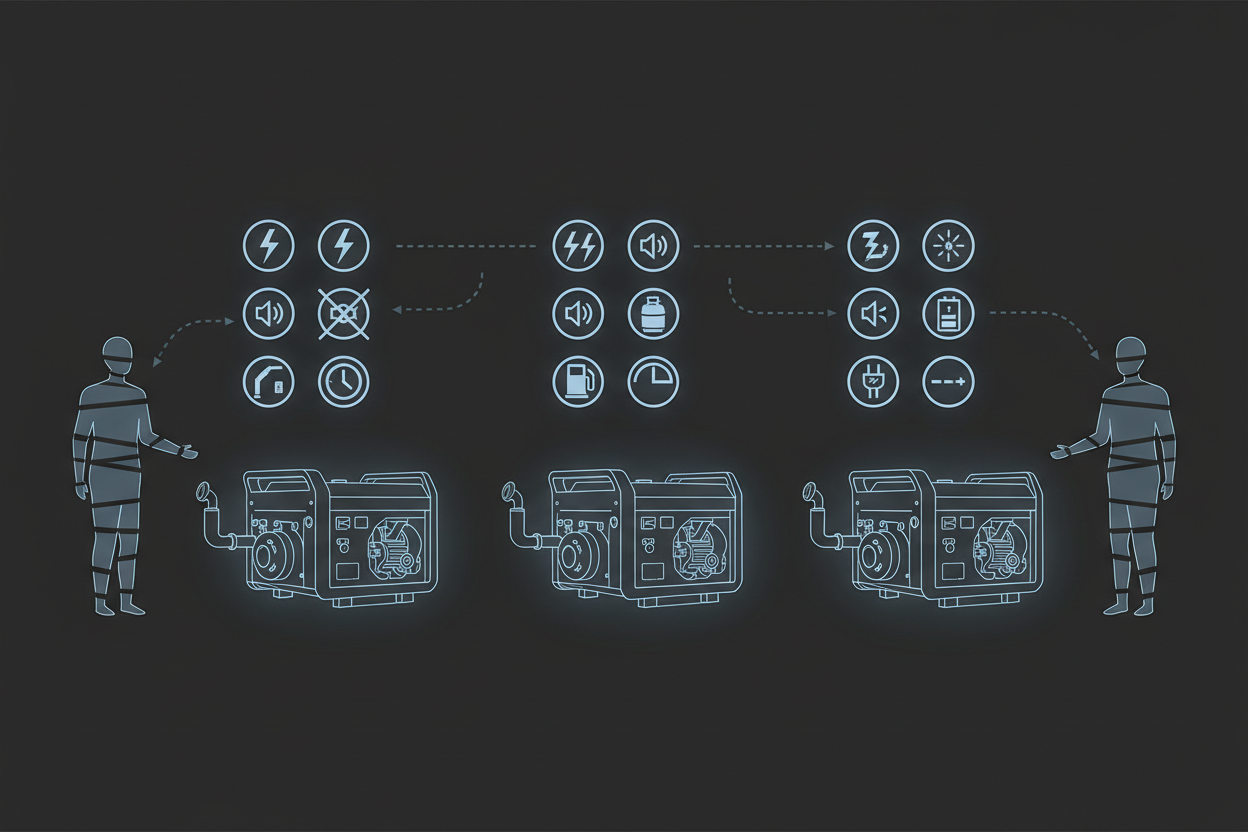How to Choose the Right RV Generator: A Practical Buyer’s Guide
Finding the right generator ensures reliable cooling, cooking, lighting, and device charging during RV travel. This guide explains key features, wattage requirements, and fuel options for different RV setups.

Key Factors When Choosing an RV Generator
The best RV generator balances power output, noise control, fuel flexibility, and portability. Matching generator size to your RV appliances ensures stable operation in any campsite.
Power Output
RVs with air conditioning typically need 3500–4500 watts for reliable cooling. Smaller trailers often run well on 2000–2400 watt inverter units for lights, electronics, and small appliances.
Noise Level
Inverter generators provide quiet operation for campgrounds and overnight use. Look for low decibel ratings during both idle and loaded conditions.
Fuel Type
- Gasoline: highest power output
- Propane: cleaner burning and longer storage
- Dual-fuel: best flexibility for long trips
Portability
Smaller generators are easier to lift and store. Larger units may offer wheels and handles for improved transport.
Runtime
Larger fuel tanks and eco mode extend runtime, reducing refueling during long stays. Dual-fuel setups help maintain power during extended off-grid camping.
Choosing Size Based on RV Type
- Small trailers: 2000–2400 watts
- Travel trailers: 3500–4500 watts
- Fifth wheels: 4500–6000 watts
- Motorhomes: 4000–7000 watts depending on amenities
Air conditioners and microwaves drive most of the wattage requirement. Always check starting watts, not just running watts.
When to Consider Parallel Generators
A parallel setup provides flexibility. Use one generator for everyday loads and add the second generator only when running air conditioning or heavy appliances.
Essential Safety Features
- CO shutoff sensors
- Overload protection
- Low-oil shutdown
- Clean sine wave output for electronics
Conclusion
Choosing the right RV generator involves balancing wattage, noise, fuel type, and portability. When matched correctly, your generator provides quiet, stable, and efficient power for every trip.
